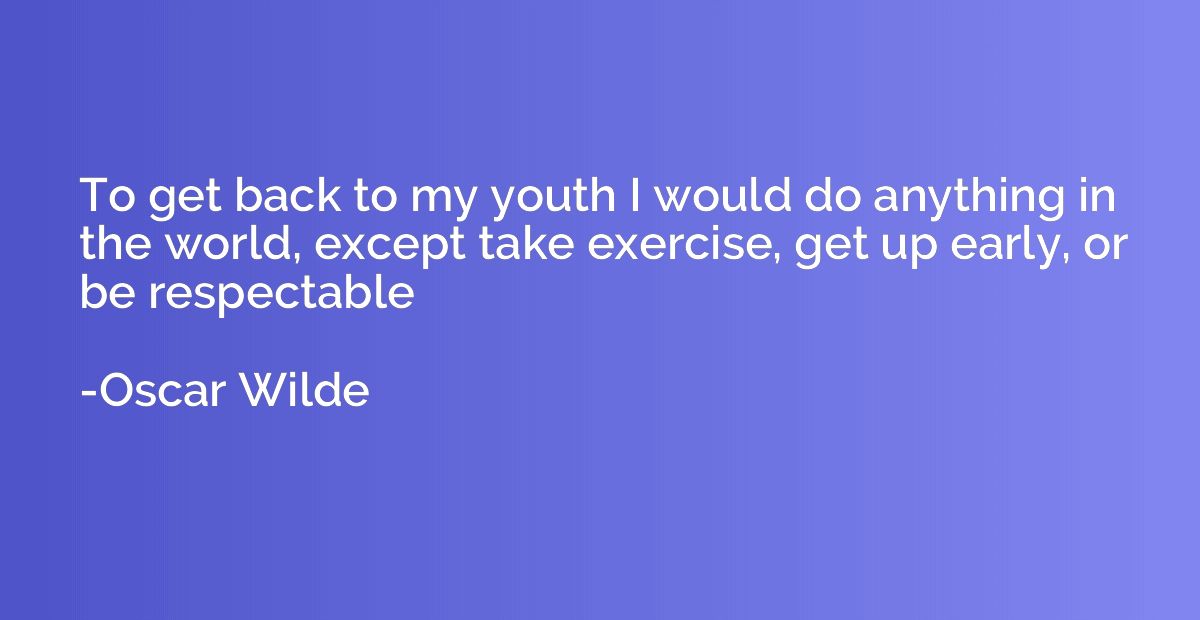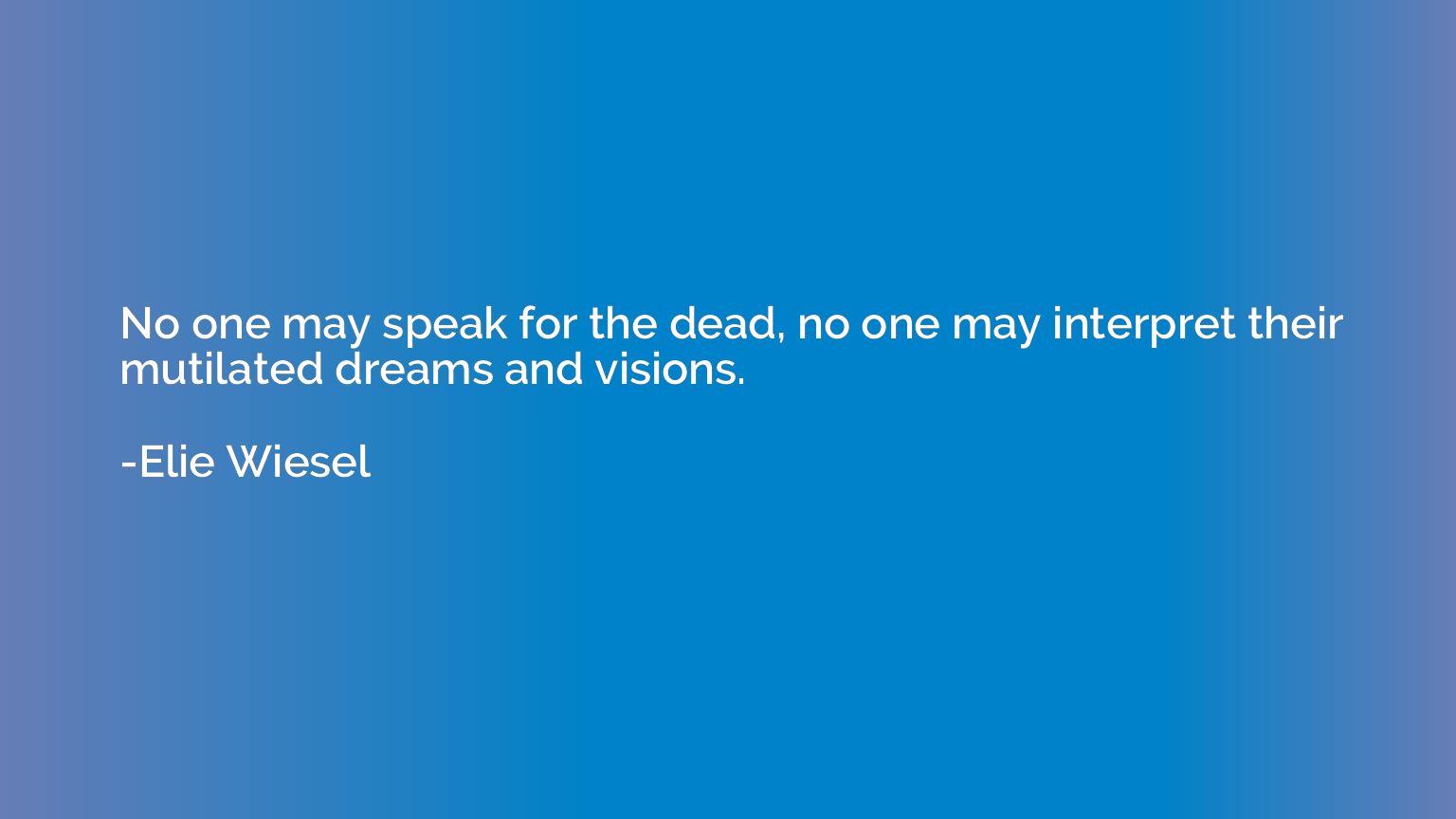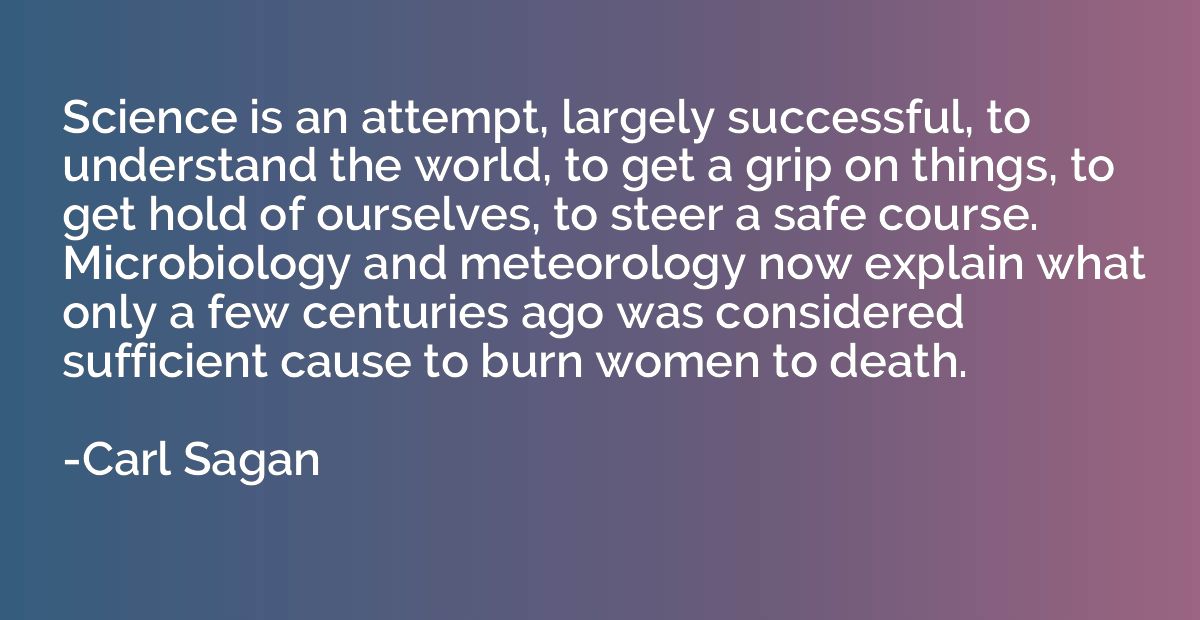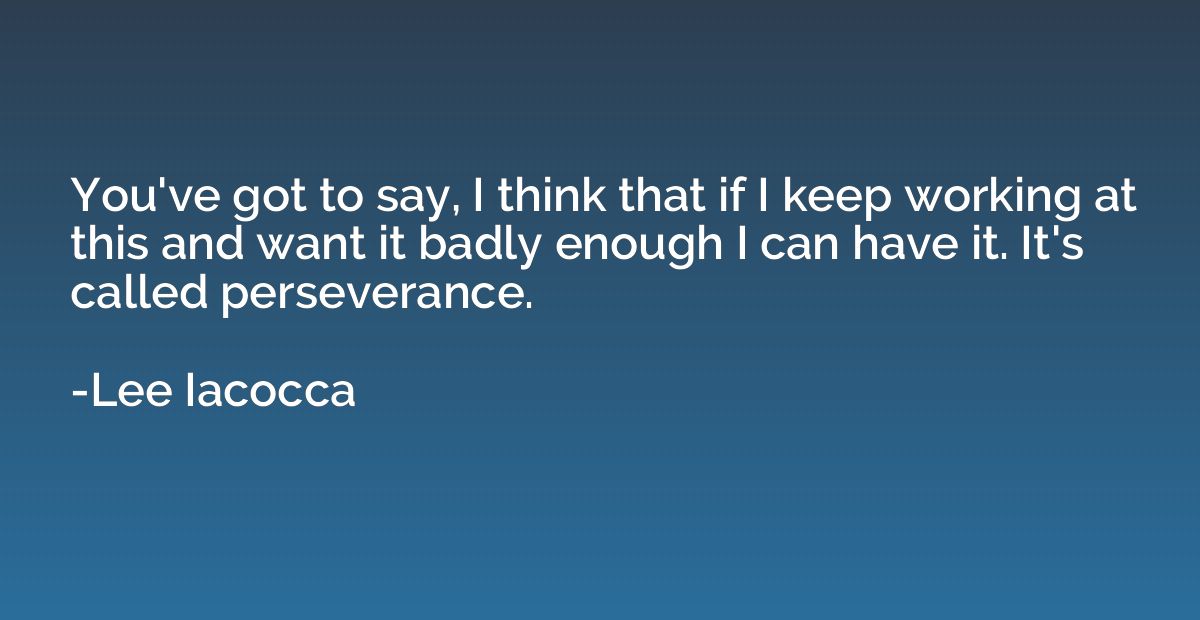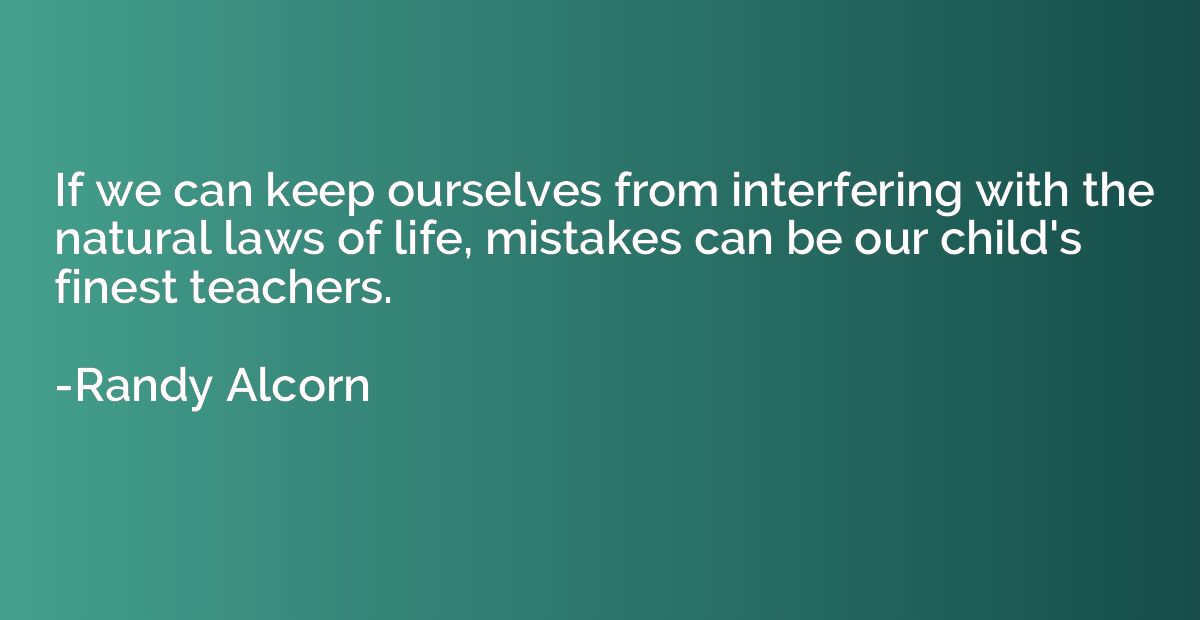Quote by James Garfield
Most human organizations that fall short of their goals do so not because of stupidity or faulty doctrines, but because of internal decay and rigidification. They grow stiff in the joints. They get in a rut. They go to seed.
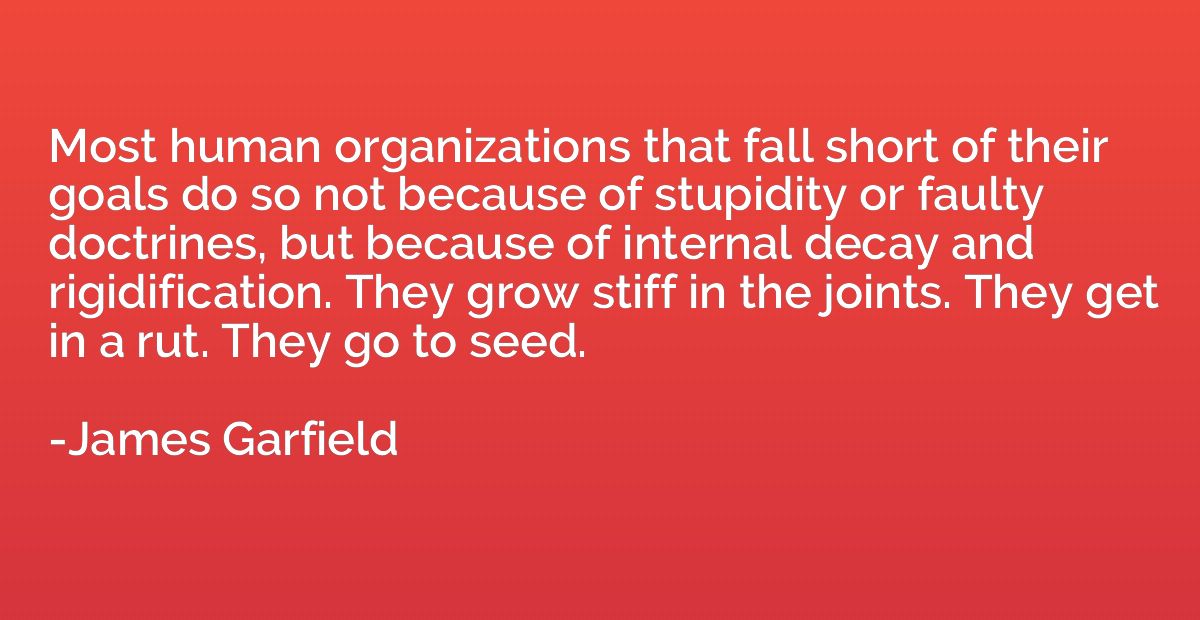
Summary
This quote highlights that the failure of human organizations is often not due to intellectual shortcomings or flawed ideologies, but instead stems from internal deterioration and becoming inflexible. The organizations become stagnant, losing adaptability and adopting rigid patterns. They become caught in repetitive behaviors that inhibit progress and innovation. Ultimately, they lose their vitality and fail to evolve, leading to their downfall. The quote emphasizes the importance of avoiding internal decay and resisting the tendency to become rigid and stuck in outdated patterns to achieve success.



![That war [Bosnian war] in the early 1990s changed a lot for](https://quotation.io/quotes/war-bosnian-war-early-1990s-changed-lot.jpg)
